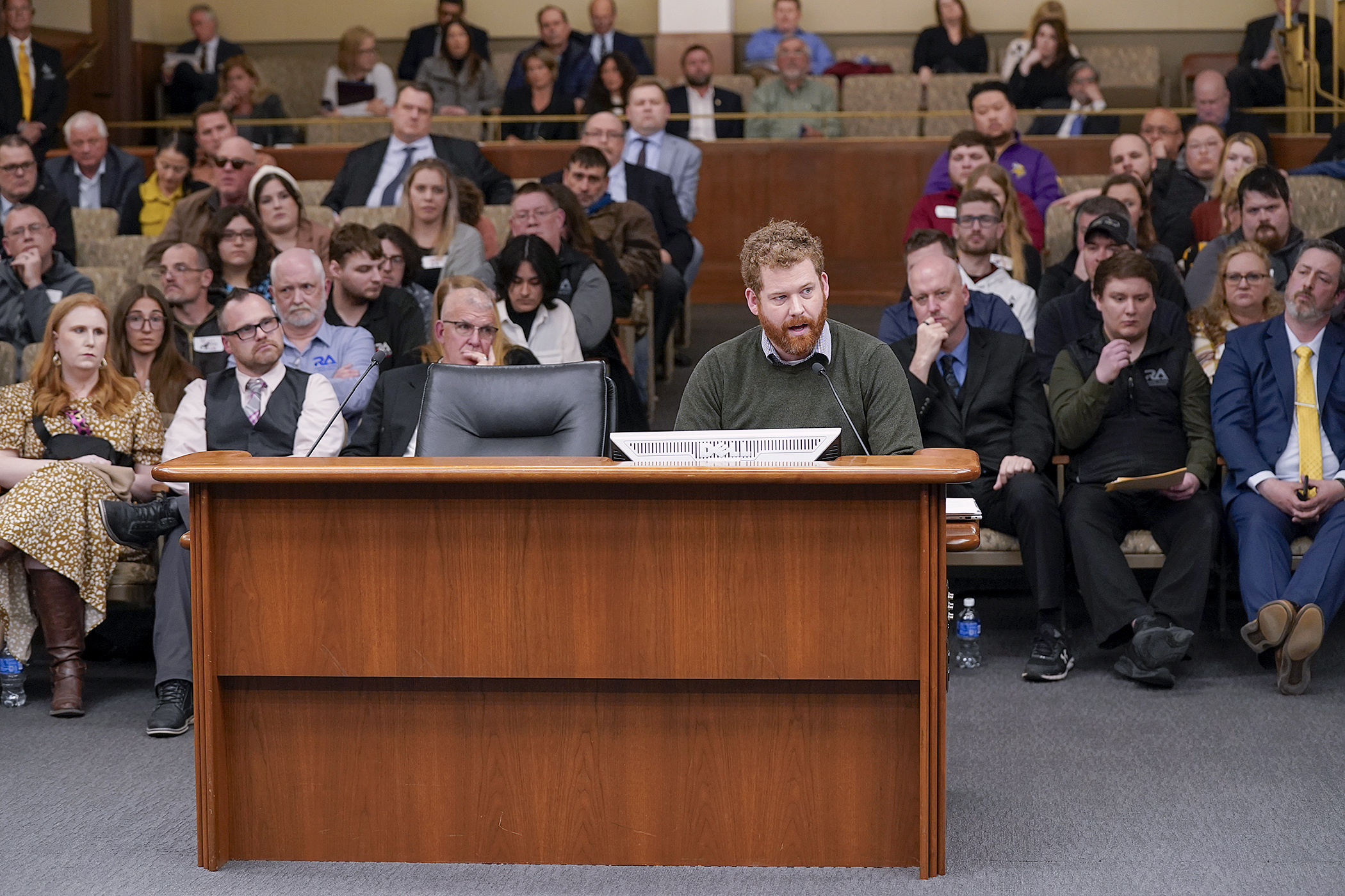Commerce committee considers measure aimed at clarifying conflicting gambling regulations

Depending on how you count them, the state has at least four agencies, commissions, and boards regulating gambling in Minnesota.
That’s too fragmented and causes problems, says Rep. Zack Stephenson (DFL-Coon Rapids).
A case in point, the Minnesota Racing Commission and the Department of Public Safety’s Alcohol and Gambling Enforcement Division are currently at odds about what kind of electronic devices state law allows at Minnesota’s two horse racing tracks.
Stephenson sponsors HF5274, which would side with the gambling enforcement division and specify that “historical horse racing” machines are gambling devices and therefore not allowed at Canterbury Park and Running Aces.
Stephenson says these machines are “essentially slot machines” because of the random nature of the payouts. Slot machines, by law, can only legally be situated on tribal lands.
However, the racing commission concluded the opposite last week, that historical horse racing machines are not gambling devices.
“This bill corrects it,” said Stephenson, chair of the House Commerce Finance and Policy Committee.
With time limited, the committee adopted an amendment offered by Stephenson and is scheduled to continue its hearing at 3 p.m. Tuesday, where public testimony is expected before a possible committee vote.
Historical horse racing is an electronic gambling product that allows players to bet on random replays of previously run races, using terminals that typically resemble slot machines. Identifying information such as the location and date of the race, and the names of the horses and jockeys, is not shown.
A player wagers money without being able to handicap the race, which Stephenson said makes the payouts random, like slot machines.
Also in the bill
Per the proposal, the racing commission could not expand gambling operations via rulemaking or other authority to include any forms of gambling other than horse racing and authorized on-site card games.
Any expansion of legalized gambling should only be enacted by the Legislature, Stephenson said, not an unelected commission.
Currently, horse racing tracks can operate card clubs to operate games such as poker and blackjack on site but are limited in the number of tables and players they can have.
Using remote video technology, tracks are illegally exceeding those limits, Stephenson said, with the blessing of the racing commission. That body has approved up to 11 electronic terminals at a single table with each terminal capable of playing three hands per game.
“That’s a total of 33 hands being played off of one dealer,” he said. “That’s more than four times the capacity of a traditional table, which only allows seven hands at a time.”
Related Articles
Search Session Daily
Advanced Search OptionsPriority Dailies
Speaker Emerita Melissa Hortman, husband killed in attack
By HPIS Staff House Speaker Emerita Melissa Hortman (DFL-Brooklyn Park) and her husband, Mark, were fatally shot in their home early Saturday morning.
Gov. Tim Walz announced the news dur...
House Speaker Emerita Melissa Hortman (DFL-Brooklyn Park) and her husband, Mark, were fatally shot in their home early Saturday morning.
Gov. Tim Walz announced the news dur...
Lawmakers deliver budget bills to governor's desk in one-day special session
By Mike Cook About that talk of needing all 21 hours left in a legislative day to complete a special session?
House members were more than up to the challenge Monday. Beginning at 10 a.m...
About that talk of needing all 21 hours left in a legislative day to complete a special session?
House members were more than up to the challenge Monday. Beginning at 10 a.m...